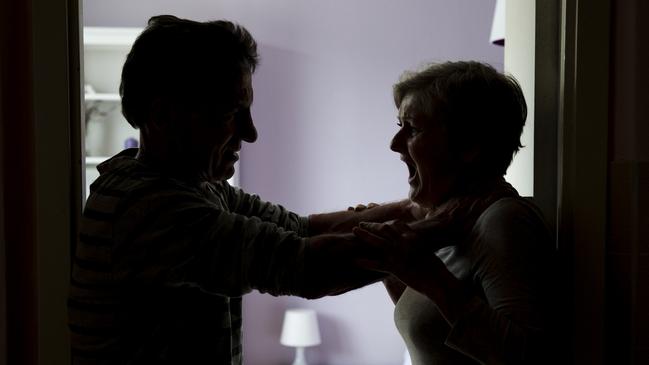New test may uncover head trauma after domestic violence
Melbourne researchers are on the road to uncovering traumatic brain injuries in domestic violence victims by using breakthroughs made in sports concussion.
Victoria
Don't miss out on the headlines from Victoria. Followed categories will be added to My News.
Melbourne researchers are working to develop a blood test that could – conclusively and objectively for the first time – determine if a victim of domestic violence has suffered a traumatic brain injury and how bad the damage is.
The concussion experts behind this $2m research project say TBI in the context of intimate partner violence is little understood by the medical and justice systems, despite 60-90 per cent of victims experiencing it.
Lead researcher Monash University neuroscientist Associate Professor Sandy Shultz said they wanted to take the breakthroughs his team had made by identifying changes that happen in the blood and brain scans after sports concussion, and apply them to the domestic violence space.
“We think this could be a unique brain injury – with unique biomarkers – compared to what we see in sports, and potentially even worse,” Associate Prof Shultz said.
“In sports now we have protocols that if someone has a head injury they aren’t allowed to return to play for a couple of weeks. Whereas there is evidence in domestic violence survivors that they’ll often have repeated violent episodes and they happen very close together.
“In addition to those physical blows, another thing that is common in domestic violence is strangulation. You’re essentially cutting off air supply and blood to the injured brain, and it’s possible that could makes these brain injuries even worse.
“Intimate partner violence is very common. Between one in three and one in six women experience it, and yet it’s very rarely screened for. We want to change that.”

The first part of the National Health and Medical Research Council funded project, which is being conducted with the Monash Gender and Family Violence Prevention Centre, will see researchers screen domestic violence victims who present to the emergency departments at The Alfred Hospital and Royal Brisbane and Women’s Hospital.
They will look for biomarkers in their blood and on brains scans in the acute aftermath of the violence, in the hunt for unique molecular “signatures” that correspond to the injuries.
The second arm of the five-year research will probe blood samples, brain scans and neurological assessments from survivors whose violence occurred six to 12 months prior, to gauge what the long term brain damage is and how it compares to athletes.
“I hope initially this research will increase awareness in the medical community and police departments that brain injury is a strong possibility and screen for that,” he said.
“Once we understand what is happening in the brain, the big picture is hopefully to develop treatments that help recovery and optimise outcomes.
“We also hope that what we learn at a scientific level, will be able to be translated into meaningful policy changes so intimate partner violence survivors can access the support they need.”


